Anime: The World of Fake Romance
If I were given a dollar every time I’ve watched a truly “romantic” anime, I wouldn’t be able to afford to heat my house during the winter, and living in inland Southern California, I have very, very little use for my heater anytime at all.
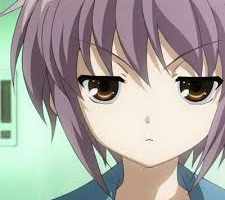
Most anime fans have seen the same romantic tactics being used repetitively in a variety of anime. It’s come to the point where romance has become either an excuse to include fan-service or a worn process that is hollow and artificial. Romance no longer seems to be a genre; rather it has become a template that any series can stamp on as a promise to viewers that there will definitely be something more than a one-sided crush. Romance has been degraded to something that no longer has depth or impact. It is now a tool to easily and cheaply create moments of tension, reveal overused characterization patterns, and pull the audience into a world of fake love.
It wouldn’t be fair to criticize something without knowing what it is, but categorizing romance is a bit of a subjective task. Wikipedia has a nice, all-encompassing definition that states that romance is “the expressive and pleasurable feeling from an emotional attraction towards another person associated with love.” It’s a ridiculously broad definition, but for the purposes of outlining a genre, it serves its purpose. An anime labelled with the tag of “romance” should convey the feelings of love between characters and capitalize on those emotions as a prime way to capture the audience. At least, in theory, it should. As I’ve stated, the current state of the category is dismal, and recent works demonstrate this deprecation quite thoroughly.
Many people have watched the series Infinite Stratos. I can hear a mix of groans, giggles and glorious shouting through the screen. The reviews are as varied as the reactions, with no set consensus on any part of the show. The anime represents everything that subtracts from and is a burden to the genre of romance. For those of you who haven’t watched the series, here is a brief synopsis.
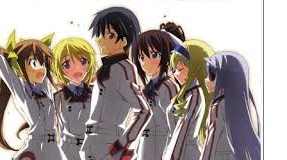
Infinite Stratos (IS) takes place in the future, when new technology allows scientists to engineer a powered suit known as “Infinite Stratos”. Orimura Ichika, a male high school student, discovers that he has the power to control these suits, and starts attending a school specifically for those who wish to work with Infinite Stratos. Until Ichika tapped into his ability there had been no previous male pilot. Consequently, the school he attends is an all-girls academy. Cue in massive amounts of fan-service, awkward moments, and scenes of dense girls fighting over a denser male protagonist. Is there any true romantic development? No, only scenes that spawn from the so-called “love” situation.
This anime is a notoriously perfect picture of the entire “stamp and go” issue of romance. The overlying problem is easy to pinpoint: where exactly is the romance? It’s hard to convince people that a group of girls that embody overused stereotypes is truly anything genuine. It doesn’t hurt that none of the main cast is given an opportunity to expand — almost no character development occurs. There is no real romantic development. It’s the typical one lucky man with a gaggle of girls drooling every time he passes by. The attraction that the heroines feel is as vague as any real high school crush and remains that way, lacking any interpersonal maturation aside from a few “skinship” moments.
However, this is not the main obstacle. The primary complication is that this fake romance is even included. Romance, as mentioned, is flexible in that it can act as the central reason to include an array of props. Want tension? Create awkward scenarios that sprout from romance. Mind some comedy? There are countless cliché gags based on a romantic relationship. Want to keep a healthy male fan base? Add girls, some naughty camera angles, and you’ve got yourself a steady audience. Romance is versatile, but requires a lot of characterization and work on the story. Some anime producers decided that these weren’t important, but liked the broad spectrum of actions that romance covered. So they included the drama, comedy, and fan-service, but left out the tedious process of developing a proper romance.
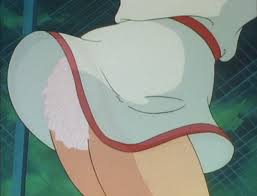
Important to recognize here is the fact that harems do not necessitate a romance tag, nor should they. IS proves that a harem can fall exceedingly short of what is required to acquire such a label, but the genre itself should not invite the thought that a certain work cannot be romantic. In fact, that a series that is only about a single relationship between two people always deserve the romance tag is never true either. Think of the ridiculous courtship between Shinishi Chiaki and Megumi Noda (Nodame) in Nodame Cantabile. Nodame’s feelings for Chiaki is her motivation for pursuing and achieving many musical endeavors and vice versa, ineffable evidence that romance was planned as a major part of the anime. In this aspect, the series failed miserably, presenting to us a relationship that was half-baked at best, but tiresome and inane in the end. The problem with Nodame Cantabile is the same one that appears in IS. The supposed love that both series show is never buttressed by anything more than the occasional blush. Both integrate the perks of romance without properly developing the areas of necessary effort. A single story arc with meaningful interpersonal character development is worth 1000 piano duets.
The pattern of leaving out the essence of romance is not a new procedure. Harem anime in particular seem to enjoy the successes utilizing such a method has brought. The issue is not in that production companies employ the technique. I personally welcome some senseless harem action from time to time. However, in substituting this fake romance, there is a lack of truly “romantic” anime.
As was previously defined, romance anime should capitalize on the emotional interaction between characters in their quest of love. Now that the qualities of not so good romance has been confirmed, it’s easier to clarify what should be done in a decent series. Since a harem was introduced as the bad, it seems only fair that a harem be used to describe the good, and this is where Ore no Imouto ga Konna ni Kawaii Wake ga Nai! (from here on out referred to as Oreimo) comes in.
Again, I’m sure many of you have watched this anime, and I consider it the pinnacle of what a romantic anime could be. The story revolves around high school student Kousaka Kyousuke and his relationship with his sister, Kousaka Kirino. Kirino has an addiction to sister-based erogames, and requests her older brother’s guidance in “life counseling” sessions. The series goes through the archetypal trial-overcoming and hurdle-hopping to reach a romantic conclusion. Seems pretty normal, and a lot like what IS embodies. So what sets apart Oreimo from the rest of the pack?
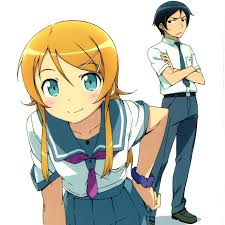
Most basically, there is real emotional development between characters. Though some are rushed and others are vague, there is a definite character development ongoing throughout the entire series. Take the main female protagonist, Kirino, for instance. She clearly despises her older brother to the point of ignoring him for years. To make a long story short, she ends up feeling a passionate love for him. Only at the end is it revealed the complexity and dredging progression her love has made. Little by little, through sacrifices both significant and trivial, the two recognize their feelings for each other. This evolution was marked by a series of events, not just a single instance of “he was nice to me so I ended up liking him” sequence that so many other series embrace. Their changing relationship is a result of real character development.
This anime also proves that there can be such a thing as a “romantic harem”. Director Hiroyuki Kanbe does a remarkable job of adding significance to the relationship that the main heroines have with each other in correlation with their personal relationship to Kyousuke. Kirino would not be as appealing of a protagonist if her interactions with her best friend Aragaki Ayane were not shown. The obstacles the two overcome give depth to both their personas, and that in turn makes for a more favorable overall selection within the harem. Ayane also ends up confessing to Kyousuke, but because of the connection between her and Kirino, this event isn’t just another check off the capture list for Kyousuke. By breathing life into characters other than the main two protagonists, Oreimo allows for a more complex love diagram in which every participant carries significance.
There is much, much more that contributes to the overall feeling of true romantic development in this anime. The subtle way in which details are presented, the plot events themselves, and in-between, independent character interactions that individually are unimportant all add to the pursuit of capturing the essence of romance, but only work because of great characterization.
As long as the foundation is there, romance can blossom anywhere at anytime. Even works that don’t necessarily focus exclusively on romance display believable and persuasive romantic situations. Bakuman is an ideal example of this because the spotlight couple in the series make a deal to refuse to see each other until they get married. That’s as out of focus as it gets, and particularly in the mid to late part of the series, the herione, Miho Azuki, is rarely seen at all until the ending arc, and even then, does not physically interact with her person of interest, Moritaka Mashiro. Despite their lack of contact, the love between the two is unforgettable because the author uses the separation to display unique idiosyncrasies of each character independently. The two do end up breaking their promise, and each uncommon, sporadic meeting shows how each of the newly discovered traits distributed to each character end up interacting. Through thorough detailing and clever exploitation of the story, Bakuman takes a slice-of-life drama and squeezes out a great romantic backstory.
What’s clear is this: great romantic works are surely possible. There a number of anime that could have easily taken to spot of Oreimo, but the quantity of these series is rapidly declining and giving way to the more popular “gotta have ’em all” mentality of pure harems that severely lack romantic qualities. I sincerely hope that the anime industry will understand that a progression in fictional love doesn’t always have to be cliche, or even normal as in the case of Oreimo. It just has to have something real, something that really pulls at the heartstrings, emotionally investing the viewers in the characters. Maybe the anime world will start showing some signs of revival in this particular genre, but until then, welcome to a world of fake romance.
What do you think? Leave a comment.




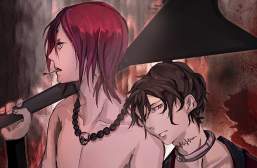



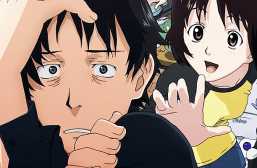


Most people do not seem to understand that Oreimo is an anime, and thus is not really intending to accurately portray real life. Most critiques I have seen thus far of this are something like “My friend told me to watch it because he/she said it was really good, but it was just some anime catering to the otakus of the industry”. Completely wrong.
-Reees
I think the jokes may only appeal to anime fans though, which is where I think some people may get confused.
I recommend looking through some hidden gems like Try Say I love you, it is romantic slice of life. It is underrated. It isn’t many episodes but it won’t piss you off in the end.
LOVE romantic animes!
Here Are My Favorite Classics!
Full Moon wo Sagashite
Fruits Basket
Mermaid Melody
Card Captor Sakura
Ouran High School Host Club
Tokyo Mew Mew
Have you ever seen Maison Ikkoku? Absolutely great romantic comedy anime series, very real, subtle, but still a fun anime with a lot of great jokes. The manga is great, too!
YES! Maison Ikkoku is great!
My favs:
Clannad
Kanon
Green green
Kanokon
Girls bravo!
love hina
kanisama kiss
ROSARIO AND VAMPIRE
dearS
Angel beats
Fruits basket
Chobbits
Freezing(M)
Sora no Otoshimono
Demon king daimao
My bride is a mermaid
Sekirei
Sankarea
Ah! my goddess
shuffle
Shakugan no shana
To love-ru
Green Green was awful and DearS was one of the most sexist pieces of work I have ever laid eyes on.
lmfao, the word “sexist” has lost all meaning nowadays.
Definitely clannad and clannad afterstory!
Nice post. There aren’t much quality anime in the category, but “Itazura na kiss” is one to look for. Story about the struggle of a girl to get the boy of her dreams.. amazing execution… great art-style… extremely hilarious!
On the topic of ‘romance’ genre anime, I recently just finished catching up on True Tears, and dare I say I think it’s quite a realistic portrayal of romance, perhaps more so than Oreimo which relies on character traits a lot (not saying that it isn’t a good show; I quite enjoy it).
I haven’t heard of that one. Is it recent?
True Tears was aired in 2008. It was produced by P.A. Works (Hanasaku Iroha, Nagi no Asukara, Angel Beats) and written by Mari Okada (the above mentioned save for Angel Beats, and also AnoHana)
I remember True Tears quite well, was about the time I truly got into watching anime, I loved that series. Slightly off topic but I still remember the OP theme of it, Reflectia I think the name was.
True Tears… It left me with this empty feeling in my heart when i finished because I didn’t know what to do with my life. I very much enjoyed it. Another great anime that could have easily been mentioned.
Ore no Imouto ga Konnani Kawaii Wake ga Nai is one gem of a series and def something a lot of fans can relate to as in no one really understands why we watch it.
I completely understand. I thought it was just me, but it seems not. There’s this weird attraction I have to it, and I get this empty sinking feeling whenever I get to the end. Here’s to a great anime!
I think these faux-romance tropes exists because that is what the creators have been conditioned to put out based on the audience being conditioned to accept it. It’s a never-ending cycle. We could get into patriarchy and wish fulfillment, but that is another bag altogether.
I’m somewhat overwhelmed with romance anime personally. Action anime that aren’t long-running shounen(or are likely going to be based on their pacing) is what I have trouble finding.
Though I kinda fit harem anime into that even though harems are primarily a comedy genre. In harems a bunch of girls chase after one guy, or a bunch of guys chase after one girl. In romance, people are generally chasing after each other and will vary depending on the anime(Toradora a guy and a girl are chasing after each other’s best friend and end up after each other, Tonari no Kaibutsu-kun the guy and girl are interested in each other and thats the only romance I’ve seen halfway into it, etc. So I mean romance are less formulaic). In the end though, they both have relationship drama so when I’ve seen a harem anime, I don’t have a craving to watch a romance anime, and vice versa.
I totally agree with you. I wouldn’t say that this idea of pseudo-romance strictly exists in anime/manga though. Honestly, romance and relationships are twisted and unrealistic across genres and mediums. Everything is sensationalized–not just anime that sport the “romance” label–and rarely do we see accurate portrayals of real romance in any kind of entertainment. Great article!
The problem with romantic anime lies in the general repetition of a working pattern. Cliched romance anime can have good ratings so the trope is often used and reused to the point where it is unbearable. Also these animes create unrealistic expectations of romance by oversimplifying it and following a general similar story arch of developing romance, conflict, resolution.
This isn’t incorrect, but this could also be said in other mediums too. Just a thought.
Great article. I would agree that excessive fan service and all out harems are not proper “romantic” animes. My all time favorite would have to be Clannad. It has actually been a while since I watched and and after reading this article I think I might go back to visit it.
Superior article! Anime’s often dipicts unrealistic lifestyle,that we should adapt to their make shift belief. Hence,we are influenced by these fairytale lifestyle. Eventually we force us to have high expectations of our relationship. This world of perfection only makes our current situation more challenging that it should be. That is why the we have such a high divorce rate and relationship should be picture perfect and not work in progress.
Interesting perspective – even knowing very little of anime I believe this is an intriguing concept that can be applied to modern romance films in general. Thanks for the great read!
Very important topic. Nice work, I do believe it is very vital for an expansive artform such as anime to get it right when it comes down to such intangibles.
Great observation! I’m not an active member of the anime audience, but in your descriptions I could understand what you meant about the entire anime world. Great article!
I agree with the concept that amines are using romance as a cardboard cut-out of what they believe “puppy love” truly is. You can only capture the character’s attention with love for so long until they find something more useful to focus their energy on. Though I have never heard of “Infinite Stratos”, I do agree that finding romantic among the characters needs time and room to grow in order to gain anything genuine about the other person. I thought it was interesting when this article mentioned harem amines, a term I had never heard of before, making total sense to the amine culture. Love stories seem to be based on the stereotypes our society has placed upon everyone to believe, making senseless action turning ridiculous. Romantic is only seen in the story line through the plot and the protagonist’s interaction with everyone; no side stories or even second characters. There comes a point where the phrase “Gotta catch ’em all” doesn’t come as easily as main characters think. With more well-rounded, developed characters, amines are sure to build less off of stereotypes and more original thought.
I personally have not seen Infinite Stratos (and I found the premise for Oreimo to be a little too weird for me to see beyond the first episode) but I definitely agree about what you’re saying with regards to generic harems. Leaving aside the fact that shows like that are ridiculously sexist to begin with, it just frustrates me when writers think excessive fanservice and catering to Otaku culture is enough to make up for the glaring faults in a show that may have originally had a lot of potential. These days anime creators seem to be more interested in appealing to the fantastical perversions of men rather than being genuine or sincere in realistic depictions of true romance. I’m sure there are people who disagree with me and think that some animes are created purely for the sake of being “ecchi” or “harem-like” (ahem* High School of the Dead, ahem* High School DxD) but, okay, you can have maybe a couple animes like that to target that particular audience, but don’t flood the anime industry with moe-moe, loli-es, and female characters who are all interested in chasing after one guy and don’t mind being treated like nothing more than a piece of meat. But anyways, after reading your article, I think I’ll give Oreimo another shot. Thanks!
Good observation on Bakuman. By keeping it in the background of the overall story and avoiding any physical contact, the romance could focus on all the things that strengthen romance.
I completely agree. Too often anime/manga relies on the viewer/reader’s expectations of, “Well of course they’ll get together!” in order to avoid the work of actually developing a relationship. I’ve always found shonen romances to be more satisfying, mainly because the genre requires that they develop almost entirely off-screen in order to give time to the fights, which at least allows me, as the audience, to imagine my own character development. That being said, I was pleasantly surprised by Ouran High School Host Club (admittedly more-so with the manga than the anime). I went in expecting all the tired tropes—which I got—but then things actually took a turn for the complex when Hikaru falls for Haruhi, allowing for conflict between him and Tamaki, emotional growth from Haruhi, and character development for both twins in their understanding that they are not, in fact, one person in two bodies. If you haven’t watched/read the series, I highly recommend it.
OHSHC is very silly but I think the reason that it is so popular because it is a real romance. It’s hilarious and crazy but the characters really drive it to make it a true romantic comedy. And I also agree with your shounen comment. I feel like when romance is not the driving plot more can be done with it and it can develop more freely. Long story short, I agree with everything you said~
Reading through this comment thread I am somewhat surprised that no one has mentioned the romantic works of Makoto Shinkai (I apologize if they were mentioned and I simply missed them) such as Voices of a Distant Star and 5 Centimeters Per Second. These are some of the most romantic anime I have ever seen and I believe this is the result of the fact that they work with an already established relationship. Early in both of these works the act of confession of love is established. The story then deals with a forming of distance between the two characters and how their relationship is effected by this distance. I really enjoyed how both of the works avoided the traditional harem mode of romance portrayed by so many anime, which I find has a more realistic vibe, not to say that the real world does not create situations in which more than two persons are involved in romantic entanglements.
Anime like every medium will have formulaic defaults, especially when it comes to romance. Look at the love triangle trope found in seemingly every YA novel. However, I think it depends on where you look in anime as to what kind of authentic romance may appear. For me “Maid-Sama” and “My Little Monster” are very interesting romances as the two love interests ending up together are part of the overall arc, what I love about these is that they venture into other aspects of their lives. Both main female characters have other parts to their lives than who they end up with and have not classically romantic tales. These two anime/manga are quite interesting and engaging when seen in this light.
Similar to others in the section, I found Oreimo’s premise a little too odd for me to consider giving it a look (something I will be rectifying in the near future). I’ve seen Infinite Stratos and find myself agreeing with you in retrospect. I’d recognized that Ichika was rock-stupid, but I guess that his idiocy made the girls look at least intelligent by comparison.
As soon as I saw the title to this article, I thought to myself, “Oh man, I am going to destroy whatever argument he has with ‘Oreimo’ as my primary example.” My input was obviously not needed. Well done, sir.
For me, the strength of “Oreimo” shines in the final few episodes when prolonged, generally uncomfortable situations are held to really push the emotions of the scene; I speak mostly to a particular conversation between Kyousuke and Kuroneko. Issues that need talking about are addressed, and not everyone ends up happy. That is what a romance anime should be.
Honestly, I don’t know what it is about Oreimo that draws me to it. It’s not any individual part:
Character designer also worked on Eureka Seven AO, but I couldn’t appreciate it there.
Harem anime generally aren’t as conclusive as Oreimo.
Tsunderes and incest in anime are really realllyyyyyy predicable most of the time.Same with most of the other character archetypes found in Oreimo.
I really appreciated the soundtrack, but had I heard these songs by themselves, I probably would not have appreciated them as much.
I think all I need to think about is that Oreimo is great. Praise be to Kirino and Kyousuke.
I have to agree with this article. There are too many anime with a genre of “romance” but it really isn’t, or they go overboard with the romance. I mean Sword Art Online’s portrayal of brother-sister love, okay there is an adoptee, but still, there is literally no use for that and it just makes it creepy. It really does seem like his ‘sister’s’ character is there for some sick fan service haha.
Also, there is typically a female character that is trying to steal or flirt with the main guy character — hella annoying.
One thing I saw in Clannad [amazing anime, a must watch with Clannad Afterstory ofc] is that Nagisa finds strength only when Tomoya picks her up. It is as though her only role is to serve the man that gave her strength (serving him when he comes from work, serving men at the restaurant… etc.) I have just been thinking that she’s got such a classic and domestic role in the series.
Nonetheless, great series, watched it twice, cried 300 times. 100/100 recommend. Great article too, keep it up.
What I like about this article is that it is raising that awareness to Anime fans. Sure, the typical romance tropes are fine now and then, everyone wants escapism, but, it’s getting old. These companies can do a much better job at representing relationships and love, but they are afraid if, they do that they will lose their fan base. Stories and characters make a lot more sense when their relationships are well thought out, this in turn makes their stories have more of an impact on the viewer.
Though you stated that oreimo is the good example of romance themed anime, but for me it still embedded with crap element… Who in the world will developed feelengs toward his or her sibling? Though in the end of oreimo series they didn’t really ended up being lovers, but love feelings that developed between siblings are not tolerated… Its not like there’s no other women in the world for the protagonist to fell in love with…
For me, “Sola” is a good example of romance themed anime (though the plot isn’t based on heavy romantic scene or something like that)… Then again, this is just my opinion…
* feeling
why are you worrying so much about it for one love doesn’t exist it was made up centuries ago and plus japan just recently gained the concept on the idea of love from Europeans and north Americans. all love that is is a type of story like ghost’s and fairies to explain something they couldn’t or make themselves feel better about it. in real life the idea love is just a shield we use to protect ourselves from realizing the only reason we are attracted to each other is to procreate nothing more nothing less its all just hormones and the desire to have offspring that how every species is but ours is the only one that feel’s ashamed or sad at the idea that there’s nothing special to it. so that’s why love is a fairy tale that anyone can change to their liking because fairy tales aren’t real i hope this helped you out and made you less agitated about how they perceive love in anime
Interesting using OreImo as an example of romance done properly. I enjoyed the first season, but I have not finished the second season yet. Honestly, the show I have plenty of bones to pick with the show, its humor sometimes falls out of parody and feels like it is embracing the tropes it is poking fun at. I’m also not fond of the idea of having a harem in which the protagonists picks his sister, it feels too fetishistic for me. That said, it handles better than most shows of its kind.
My favorite romantic comedy anime is Toradora, for many of the reasons you mentioned in describing OreImo. Taiga starts of as an archetypical tsundere, but develops into something more as the show progresses. Her bad attitude becomes more understandable through her bad family situation, and her hopeless crush makes her makes her a kindred spirit with leading man Ryuuji. What makes the show great is how the romance between the Taiga and Ryuuji blooms from a mutual agreement to help each other get with their respective best friends; all the while slowly developing feelings for each other without even realizing it at first. On top of that, it does its love triangles correctly. Taiga and her best friend Minori are vaguely aware that the other has feelings for Ryuuji, and so are hesitant to act on their feelings. Ami has feelings for Ryuuji, but is painfully aware of the romantic situation in the group, and regrettably ruined her chances with Ryuuji early on. Still she tries to help everyone else sort out their feelings in her own way. The show is a great example of using romantic feelings in order to have the characters mature.
I definitely agree with many of the points you have made in this article. Nowadays, the genre of Romance seems to be treated as somewhat of a given for most anime, and as a result not given the development and attention it deserves instead being treated like a commodity. I particularly liked the way you used IS as one of your examples as that is one of the best examples of the commodity romance has become. Indeed, this show can hardly be called a romance as it hardly develops this concept at all and it never displays any truly romantic development or encounters, simply relying on cliches and fanservice.
I don’t really agree with your use of Nodame Cantabile as an example though for the fake love concept as I thought the romance between Chiaki and Nodame was quite well done. Their relationship seemed to progress quite naturally, slowly becoming closer over time after various interactions with one another, and their growing closeness shows in these interactions as the series progresses. And although Nodame’s crush on Chiaki does indeed propel her to greater musical achievement it isn’t the only thing that motivates her as she slowly finds her own love for music and wants to become and accomplished musician in her own right. While the romance is quite slow it does eventually go beyond the level of blushing and stuttering, and I kind of appreciate the slow burn in some respects as it feels more realistic. But those are just my opinions on their relationship, and I might be a bit biased as I very much enjoyed this series.
But overall, great article and hopefully the romance genre will once again receive the do attention it deserves as it is an interesting genre to both watch and explore.
I feel like the problem goes deeper than just romance. Romance in anime falls prey to the much more general problem: oversimplification. Shows have a tendency to simplify the elements of their stories in order to quickly and reliable elicit a reaction from the audience. This comes out in the stale, cliche jokes that pass as comedy (but no one actually thinks are funny). Romance has the same problem: the writers rely on commonly accepted tropes to establish that there is a romance between two characters. They simplify the relationship down to a few key points and try to rely on that to carry the romance (a feat rarely accomplished). True romance is established on a large body of common understanding and trust between two individuals, not a little bit of flirting and some dramatic music.
My biggest problems with any form of “romance” anime are the selfish, indifferent, and or brutally cruel natures of each of the women within a harem styled story, and the ignorance and completely blindness of the male protagonist with regards to a girl’s deep affection for him, whether the anime be a harem story or not. I just can’t believe that so many relatively smart guys are this completely oblivious, especially when the flirting and advances are so blatantly obvious sometimes.